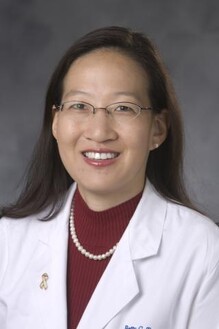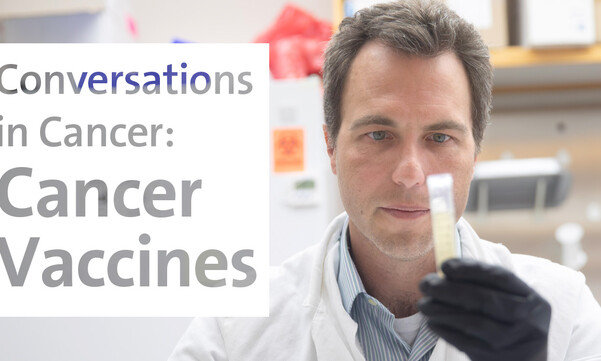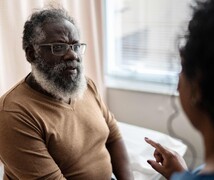Lung cancer screening with low-dose CT is covered by Medicare and private insurers for people who smoke or have smoked in the past. There’s a reason. Lung cancer is a deadly disease, and early detection can save lives. Here, lung cancer specialists Betty Tong, MD, and Jared Christensen, MD, explain what you need to know about lung cancer screening and who should be screened.
What is Lung Cancer Screening?
Radiologists use low-dose CT scans to take detailed pictures of the lungs. These images are analyzed for any findings that may indicate lung disease, including cancer.
Who Should Get Screened?
People age 50 and older who meet these criteria should be screened for lung cancer:
- Have a smoking history of at least 20 “pack years.” This is calculated by multiplying the number of packs of cigarettes smoked per day by the number of years you have smoked.
- Currently smoke or quit less than 15 years ago.
- Have no major health problems or conditions that would prohibit cancer treatments.
If you need help determining your pack years or your ability to get screened, Dr. Christensen recommended talking to your primary care provider. You can also send questions to a provider through My Duke Health (previously Duke MyChart).
Why Should I Be Screened for Lung Cancer?
Lung cancer is the leading cause of cancer deaths in the United States. Annual lung cancer screening with low-dose CT can find lung cancers in their earliest stage, when the cancer is easier to treat and potentially curable. Dr. Tong noted that national studies have shown that this type of screening can reduce the risk of death from lung cancer by 20 to 25% in people who currently smoke or previously smoked cigarettes.
Why Should I Be Screened at Duke?
The Duke Lung Screening program is recognized as a Center of Excellence in Lung Cancer Screening by the American College of Radiology. We provide access to the best diagnostic screening tool available: low-dose CT scans. These scans are highly accurate, minimize radiation exposure, and are read by radiologists who specialize in lung disease. If lung cancer is detected, you will have direct access to a team of lung cancer specialists experienced in caring for people at every stage of the disease, from diagnosis to treatment -- and beyond. We are committed to providing you with the most advanced services as well as comprehensive support and education during and after your treatment.
What are the Facts About Lung Cancer Screening?
People may avoid lung cancer screening because they think it won’t help or may result in a “false positive,” resulting in unnecessary tests or treatments. It is important to weigh the risks and benefits when making a decision. Here are the facts:
- Lung cancer screening saves lives. Low-dose CT scan has been shown to reduce the risk of dying from lung cancer by 20-25%.
- Earlier diagnosis equals more treatment options. When lung cancer is caught earlier, treatments are more effective, and more treatment options may be available.
- CT screening uses low doses of radiation to produce images. Cumulative radiation exposure can damage cells and may result in cancer later in life. However, the risk of developing a radiation-induced cancer is extremely low. Duke uses a special low-dose method to minimize radiation exposure.
- Lung cancer is rarely slow-growing. Only 4 in 1,000 people are diagnosed with a “slow growing” lung cancer that would not result in serious illness or death. The quicker lung cancer is identified, the quicker it can be treated.
How Can I Reduce My Risk of Lung Cancer?
Stop smoking now. It’s the most powerful way to lower your chance of lung cancer. You will experience the benefits shortly after you quit. Call 1-800-QUIT-NOW for help, or learn more about smoking cessation programs at Duke.
Get More Information
If you have questions about lung cancer screening or would like to confirm your eligibility, contact your primary care provider or schedule an appointment with a specialist in the Duke Lung Screening Program by calling (919) 613-4318.





